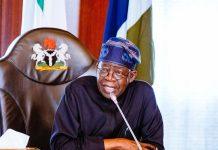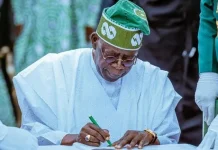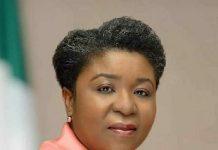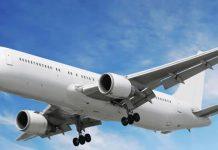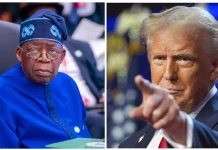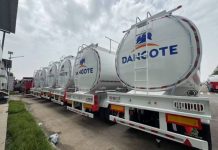Jet A1 costs, fluctuating foreign exchange, or shifting operational expenses are typically the culprits when airline ticket prices rise. However, another increasingly significant culprit in Nigeria today is the ever-growing network of taxes imposed by the government.
The Nigeria Civil Aviation Authority (NCAA) has informed airlines that it will start collecting an extra $11.50 per international ticket through the Advance Passenger Information System (APIS) on December 1, 2025.
According to the agency, the tax will be collected at the time of sale and sent by the issuing carrier. The new cost is simply the most recent addition to a lengthy series of taxes and surcharges that, for many travelers, transform a headline fare into something quite different when they check out.
The total cost of the tickets is staggering. The typical foreign visitor to or from Nigeria today has to deal with a plethora of mandatory fees, which frequently consist of:
The Federal Airports Authority of Nigeria (FAAN) levies the traveler Service Charge (PSC), which is typically stated to be around $100 per international traveler from non-West African nations or $80 for West African nations.
NCAA security levy: Prior to the APIS hike, this long-standing security fee was typically stated at $20 per international ticket.
Ticket Sales Charge (TSC): Passengers are also required to pay this percentage levy, which is approximately 5% of the ticket value.
The NCAA’s $11.50 APIS fee will go into effect on December 1, 2025.
When service fees, airline surcharges, and foreign exchange-driven rate rises are taken into account, independent analysts estimate that the total cost of a ticket for a Nigerian resident traveling abroad can approach, and frequently surpass, $150. Nigeria is among the most expensive countries in Africa for taxed aviation travel, according to that figure.
The APIS levy has been presented by the NCAA as a security and border management project. According to the agency, the system’s data will be utilized to pre-screen travelers and establish a single-window approach for airport agencies. The authority added that the fee is meant to serve as a means of recovering costs associated with the upkeep and operation of the system. The levy is expected to last for 20 years.
Despite that justification, the accountability and the math pose significant concerns. Several outlets calculated that the NCAA could earn between $46 and $49 million annually from the APIS levy using pre-existing passenger traffic data. This stream would add up to almost $1 billion over a 20-year period (estimates usually range from $989 million to $1.0 billion depending on exchange-rate assumptions). These amounts are enormous, dwarfing many single-year allocations that are frequently addressed in the budgeting of the aviation sector.
It spent several hours at the Murtala Muhammad International Airport in Lagos, where it spoke with travelers about the practical implications of the additional fee. Their voices perfectly convey the frustration and confusion that many people who already have limited travel funds experience:
One young man remarked, “I’m traveling for my sister’s graduation,” while standing in line to check in. “That additional $11.50 may not seem like much, but when you factor in the airport taxes and PSC, it becomes a second ticket. That is unjust.
“We pay VAT, ticket charges, security levies – and now this,” a businesswoman traveling to London said. You perceive yourself as being taxed simply for being alive.
After returning from vacation, an elderly couple said, “Pensioners travel on small budgets.” Travel is becoming a luxury due to airfare rises, which forced us to cancel once.
“If prices continue to rise, young people will stop going abroad for study or work visits,” a student stated plainly while holding one backpack. This is not very visionary.
These intimate photos highlight the fact that the discussion is not just financial but also social and economic. Increased ticket costs run the danger of decreasing outbound travel, rerouting transit traffic to other West African hubs, and putting pressure on airlines that are already struggling to make a profit. Stacked taxes undermine competition and may encourage travelers to take flights through neighboring nations with lower taxes, according to a number of airlines and industry representatives.
Beyond the burden on travelers, accountability is the main concern. The fee, which is ostensibly a cost-recovery measure, has been set by the NCAA to run for 20 years.
The regulator was asked to respond to a question on how the funds will be ring-fenced. What public reporting, auditing, and governance systems will direct the expenditures? Will real APIS operating costs and passenger volumes be compared against the levy on a regular basis? Who will manage the system’s project procurement? These questions have not yet been addressed. As of the time of publication, the NCAA had not responded to a request for comment.
There are other, more specific questions that need for honest responses. Consider this: Overlap and repetition: How would APIS relate to the duties of the Nigeria Immigration Service (NIS) and other agencies as well as the current security levies? Is the goal really to streamline or is it just to collect extra fees if several entities examine passenger data?
Exemptions and equity According to the NCAA memo, newborns, diplomats, and crew are excluded. Will there be more relief categories (students, Nigerians in the diaspora traveling for medical reasons), and how will exemptions be handled to prevent abuse?
Economic impact modeling: What independent study was conducted to evaluate the impact of the fee on airline routing choices, passenger demand, and the larger tourism and expatriate remittance sectors?
Transparency across the 20-year period: Detailed, continuous public reporting is necessary for a two-decade collecting plan, not simply a single letter. Will project updates, audited accounting, and yearly receipts be released by the NCAA?
Both industry organizations and consumers have argued that new taxes should only be implemented following extensive stakeholder consultations, explicit transparency safeguards, and observable increases in efficiency.
Speaking to other media, a number of airline executives emphasized that blanket tariffs are blunt tools that can backfire, penalizing regular travelers and diverting traffic from other airports.
In theory, the NCAA’s declared objectives—a single-window data system and enhanced border security—are not debatable. Numerous nations use APIS or comparable systems. However, whether or not individuals can perceive the value for the money and whether or not revenue collection is subject to independent oversight serve as the benchmark for public acceptability.
This episode will be evaluated based on whether it repeats or deviates from Nigeria’s aviation industry’s historical struggles with opaque project funding and poor infrastructure promise fulfillment.
For the time being, passengers will still experience pressure at the ticket booth. When paired with the PSC, TSC, and other fees, the NCAA’s new $11.50 levy is minor on its own but significant overall. This helps to explain why the actual cost of flying from Nigeria is frequently more than many travelers anticipate.
The solution is straightforward in theory but difficult in practice if the regulator wants the public to trust a 20-year revenue plan: publish the figures, open the books, respond to the inquiries, and repeatedly demonstrate how the funds enhance security and service rather than just filling accounts. In the interim, the levy will appear more like an unseen travel tax than a security improvement.
Join Television Nigerian Whatsapp Now
Join Television Nigerian Facebook Now
Join Television Nigerian Twitter Now
Join Television Nigerian YouTUbe Now

